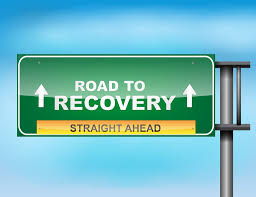The Journey to Alcohol Recovery: Overcoming Challenges and Embracing Healing
Alcohol recovery is a transformative journey that requires courage, determination, and support. For individuals struggling with alcohol addiction, taking the first step towards recovery can be daunting yet empowering. It is a process of self-discovery, healing, and growth that ultimately leads to a healthier and more fulfilling life.
Understanding Alcohol Addiction
Alcohol addiction is a complex disease that affects both the body and the mind. It is characterized by a compulsive need to consume alcohol despite negative consequences. This dependency can have detrimental effects on physical health, mental well-being, relationships, and overall quality of life.
The Path to Recovery
Recovery from alcohol addiction is not a linear process; it involves ups and downs, challenges and victories. It requires commitment to change, willingness to seek help, and perseverance in the face of obstacles. Support from loved ones, counseling, therapy, and participation in support groups can all play crucial roles in the recovery journey.
Challenges Along the Way
During the recovery process, individuals may encounter various challenges such as cravings, triggers, withdrawal symptoms, emotional struggles, and social pressures. It is important to develop coping strategies, build resilience, and cultivate healthy habits to navigate these challenges successfully.
Embracing Healing
Healing from alcohol addiction involves more than just abstaining from drinking; it also entails addressing underlying issues such as trauma, mental health conditions, low self-esteem, or relationship problems. Through therapy, self-reflection, and personal growth efforts, individuals can heal past wounds and build a strong foundation for lasting sobriety.
Celebrating Victories
Every milestone achieved in alcohol recovery – whether it’s one day sober or one year sober – is worth celebrating. Each step forward represents progress towards a healthier lifestyle and a brighter future. By acknowledging achievements big and small along the way, individuals can stay motivated and inspired on their journey to recovery.
Conclusion
Alcohol recovery is a challenging yet rewarding path towards personal transformation and well-being. By facing obstacles head-on with courage and resilience, seeking support when needed, embracing healing on all levels – physical, emotional, mental – individuals can break free from the grip of alcohol addiction and create a life filled with hope, purpose, and joy.
9 Essential Tips for a Successful Alcohol Recovery Journey
- Seek professional help and support from a therapist or counselor.
- Join a support group such as Alcoholics Anonymous (AA) for ongoing encouragement.
- Develop healthy coping mechanisms to deal with stress and triggers without turning to alcohol.
- Stay away from environments or situations that may tempt you to drink.
- Practice self-care activities like exercise, meditation, or hobbies to improve your overall well-being.
- Set realistic goals and celebrate small victories along the way.
- Communicate openly with loved ones about your recovery journey and ask for their understanding and support.
- Create a daily routine that includes positive habits and avoids situations where alcohol is present.
- Stay patient and committed to the process of recovery, understanding that it takes time and effort.
Seek professional help and support from a therapist or counselor.
Seeking professional help and support from a therapist or counselor is a crucial step in alcohol recovery. These trained professionals can provide guidance, therapy, and strategies to help individuals navigate the challenges of overcoming alcohol addiction. Therapists and counselors offer a safe space for individuals to explore underlying issues, develop coping skills, and work towards sustainable sobriety. Their expertise and support play a significant role in empowering individuals on their journey to recovery and promoting long-term well-being.
Join a support group such as Alcoholics Anonymous (AA) for ongoing encouragement.
Joining a support group such as Alcoholics Anonymous (AA) can provide invaluable ongoing encouragement and guidance on the journey of alcohol recovery. Being part of a community of individuals who understand the challenges and triumphs of overcoming addiction can offer a sense of belonging, accountability, and shared wisdom. AA meetings provide a safe space for sharing experiences, receiving support, and learning from others’ stories, fostering a supportive environment that reinforces commitment to sobriety and personal growth.
Develop healthy coping mechanisms to deal with stress and triggers without turning to alcohol.
Developing healthy coping mechanisms is essential in alcohol recovery. By learning effective ways to manage stress and navigate triggers without resorting to alcohol, individuals can strengthen their resilience and maintain sobriety. Strategies such as mindfulness practices, exercise, journaling, connecting with supportive peers, and seeking professional help can provide healthier outlets for managing emotions and challenges. Building a toolbox of coping skills empowers individuals to face difficult situations with clarity and strength, ultimately fostering long-term recovery success.
Stay away from environments or situations that may tempt you to drink.
To support your alcohol recovery journey, it is crucial to avoid environments or situations that may trigger cravings and tempt you to drink. By staying away from places where alcohol is readily available or where drinking is a common activity, you can reduce the likelihood of relapse and stay focused on your sobriety goals. Surround yourself with supportive and understanding individuals who respect your decision to abstain from alcohol, and seek out alternative activities that promote health and well-being. Remember, creating a safe and positive environment plays a key role in maintaining your commitment to recovery.
Practice self-care activities like exercise, meditation, or hobbies to improve your overall well-being.
Engaging in self-care activities such as exercise, meditation, or hobbies can significantly enhance your overall well-being during the alcohol recovery process. These practices not only promote physical health but also contribute to mental and emotional balance. Exercise helps release endorphins, which can boost mood and reduce stress. Meditation fosters mindfulness and relaxation, aiding in managing cravings and improving focus. Pursuing hobbies provides a positive outlet for creativity and enjoyment, offering a healthy distraction from triggers. By prioritizing self-care activities, individuals in alcohol recovery can cultivate resilience, self-awareness, and a sense of fulfillment on their journey to healing.
Set realistic goals and celebrate small victories along the way.
Setting realistic goals and celebrating small victories are essential components of the alcohol recovery journey. By establishing achievable milestones, individuals can track their progress and stay motivated. Celebrating each small victory, whether it’s a day of sobriety or successfully navigating a triggering situation, reinforces positive behavior and boosts self-confidence. These celebrations serve as reminders of the strength and resilience needed to overcome challenges, encouraging individuals to continue moving forward on the path to lasting sobriety.
Communicate openly with loved ones about your recovery journey and ask for their understanding and support.
Open communication with loved ones is crucial on the path to alcohol recovery. By sharing your journey and seeking their understanding and support, you can create a supportive environment that fosters healing and growth. Honest conversations can help strengthen relationships, build trust, and provide the encouragement needed to overcome challenges. When loved ones are aware of your struggles and triumphs, they can offer empathy, guidance, and motivation, making the recovery journey feel less daunting and more hopeful.
Create a daily routine that includes positive habits and avoids situations where alcohol is present.
To support alcohol recovery, it is essential to establish a daily routine that promotes positive habits and minimizes exposure to situations where alcohol is present. By structuring each day with activities that nurture physical, mental, and emotional well-being, individuals can create a supportive environment conducive to sobriety. This may involve engaging in exercise, mindfulness practices, hobbies, or social interactions that do not revolve around alcohol. Avoiding triggers and environments that may tempt relapse is key to maintaining progress on the path to recovery and fostering a healthy lifestyle centered on wellness and self-care.
Stay patient and committed to the process of recovery, understanding that it takes time and effort.
Staying patient and committed to the process of alcohol recovery is essential for long-term success. It’s important to understand that healing from addiction takes time and effort, and there may be setbacks along the way. By remaining patient with yourself and the journey, you can build resilience, overcome challenges, and gradually make positive changes that lead to lasting sobriety. Remember that progress is not always linear, but with dedication and perseverance, recovery is achievable.



